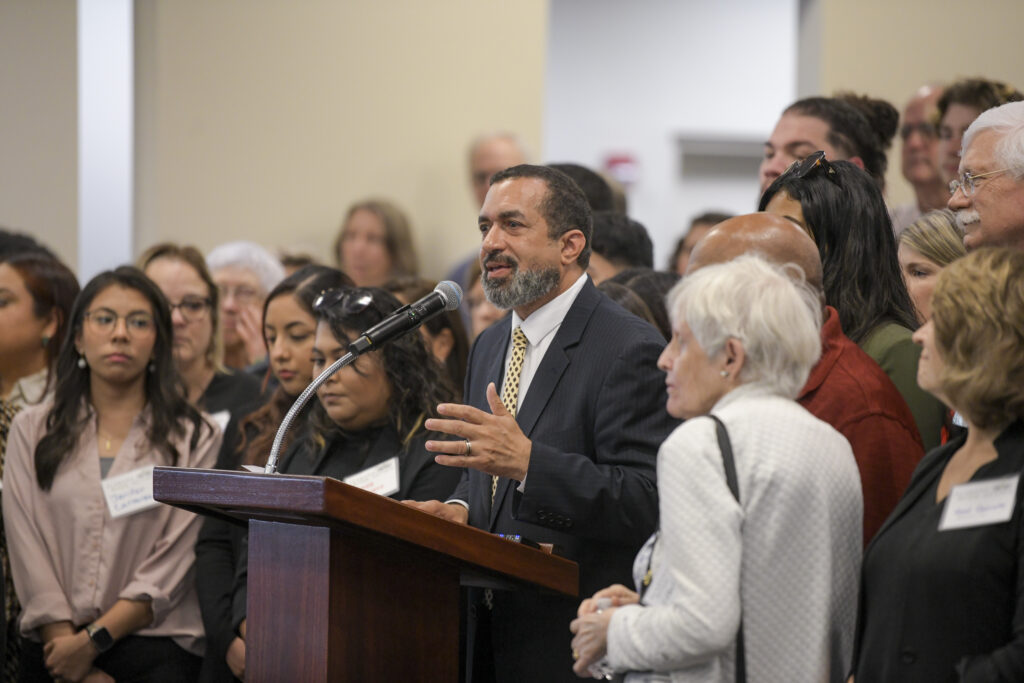Alabama Arise and our members have worked for more than 35 years to push for policies that improve the lives of people struggling to make ends meet. We have remained steadfast in this mission and our values, and we will continue that commitment in the coming years.
Arise is deeply concerned about the prospect of harmful federal tax and budget changes next year. And we are working closely with national allies and those in other states to educate and advocate on these issues. We’ll be calling on you, our members and partners, to help us protect Alabamians with low incomes. We will be responding to numerous federal issues in 2025. These include:
Tax cuts for the wealthiest households
Federal tax cuts passed in 2017 benefited wealthy people and highly profitable corporations at the expense of revenue for essential services like public education and health care. We expect Congress to move quickly to try to renew these skewed tax giveaways to the wealthiest households and corporations. We also are concerned that targeted tax credits for people with low incomes, including the Earned Income Tax Credit and the Child Tax Credit, might be cut to offset the cost of tax cuts for wealthy households.
Federal funding cuts for human services
Arise and our partners expect Congress will try to freeze or reduce spending on services that help working people, in an effort to offset the cost of tax giveaways to the wealthiest Americans. Services at risk could include education services for struggling students, affordable housing and public transportation. Congress also could reduce state grants under the Temporary Assistance for Needy Families (TANF) program, which provides income and work supports for people with extremely low incomes.
We also expect to see proposals to cut food aid under the Supplemental Nutrition Assistance Program (SNAP) and health coverage under Medicaid, the Children’s Health Insurance Program (known as ALL Kids in Alabama) and the Affordable Care Act. We are particularly worried about the possibility of state block grants or privatization of health care programs.

Arise expects to fight against harmful new work reporting requirements for participants in Medicaid, SNAP, affordable housing and similar programs. These would result in many costly paperwork barriers and arbitrary denials for people eligible for these services.
Attacks on undocumented immigrants
Efforts to deport large numbers of undocumented immigrants likely would disproportionately hurt Hispanic communities and result in human rights abuses. These initiatives also likely would drive up the price of goods and services for everyone. The first Trump administration tried to make it easier to deport people who participated in programs like Medicaid or SNAP. We anticipate another effort to impose a similar “public charge” rule.
Harmful long-term structural changes
Further down the road, we are watching for potential harmful changes to SSI disability cash assistance. We also are concerned about potential proposals to privatize Social Security and to slash Medicaid and SNAP by turning them into block-grant programs or significantly cutting federal funding.
What we can do together
The federal road ahead will not be easy for Alabamians with low incomes. But we have survived serious policy threats before, and we can again, as long as we all work together. It is important to remember a few key strengths that we have:
- Congress is deeply divided, especially in the House. Some things that require congressional action may be hard to pass.
- Federal administrative rule changes are a slow and tedious process. Public comments can play a major role in slowing or stopping harmful regulations.
- Equitable tax policy and adequate budgets for human services are broadly popular. Public opinion matters and can make a real difference.
Arise pledges to help our members stay informed with fact sheets, blog posts and other informative materials. We will share timely action alerts to help our supporters speak out to elected officials on issues that matter to working families. And we will support immigrants, people of color, low-income communities and other Alabamians who are at risk of policy harm.
We are stronger together. Arise’s coalition has a decades-long track record of credibility and success. And with your ongoing advocacy and support, we will continue advancing our shared vision of a better Alabama for all.




